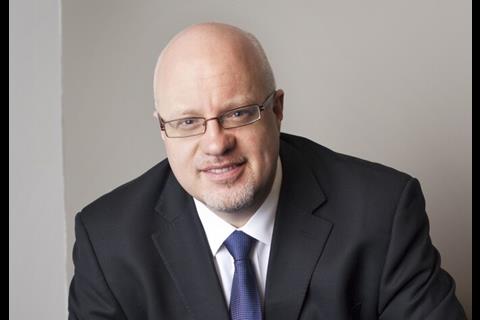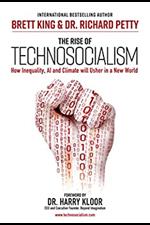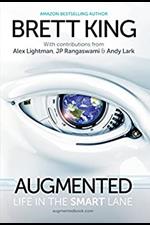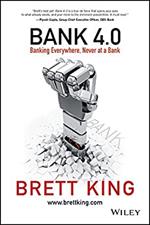
02 Mar Brett King

Speaker: BRETT KING
Futurist, Startup Founder, Bestselling Author, Radio Host, TV Commentator
Speech Topics Include:
- Augmented: Life in the Smart Lane
- Technosocialism: Living in a post-Covid19 world
- The Rise of Techno-socialism: Why Trump and Brexit are speed bumps in the road to a better future
- Breaking Banks: The Innovators, Rogues and Strategists Rebooting Banking
Brett King is a world-renowned futurist and speaker, an International Bestselling Author, and a media personality who covers the future of business, technology, and society. President Xi Jinping cited his book Augmented on the topic of Artificial Intelligence and he was voted Top Foreign Author for 2019 in Russia. He has spoken in over 50 countries, at TED conferences, given opening keynotes for Wired, Techsauce, Singularity University, Web Summit, The Economist, IBM’s World of Watson, CES, SIBOS and many more. He has appeared as a commentator on CNN, CNBC, BBC, ABC, Fox, and Bloomberg. He previously advised the Obama administration on Fintech policy and advises regulators and bank boards around the world on technology transformation.
King hosts the world’s first and #1 ranked radio show on FinTech called “Breaking Banks” (180 countries, 10m+ downloads) and his latest venture is “The Futurists “, a podcast featuring those creating the future. He is the Founder of Moven, the world’s first mobile, downloadable bank account. Moven was the first app-based, neo-bank or challenger bank in history that allowed an in-app application process for a debit card, the first banking app to use the home screen for financial health indicators, the first real-time receipts for transactions, and the first bank to use contactless cards in the US) and now a Banking-as-a-Service platform for mobile banking and financial wellness available for banks and fintech’s globally.
Named “King of the Disruptors” (Banking Exchange magazine) and the “Godfather of Fintech” (The Australian newspaper), King is a Fintech Hall of Famer (CB Insights) who was voted American Banker’s Innovator of the Year, voted the world’s #1 Financial Services Influencer by The Financial Brand and was nominated by Bank Innovation as one of the top 10 “coolest brands in banking”. He was shortlisted for the 2015 Advance Global Australian of the Year Award for being one of the most influential Australians living offshore. His books have been released in over a dozen languages and he has achieved bestseller status in 20 countries. His fifth book Augmented: Life in the Smart Lane was an international bestseller, top 10 in North America and China, and the book remained in the top 10 on Amazon for 2 years. Bank 4.0, which followed, has already spent 3 years on the Amazon bestsellers list for Banking books. His latest book for the post-Coronavirus world is entitled The Rise of Technosocialism and is out now.
Augmented: Life in the Smart Lane
The internet and smartphone are just the latest in a 250-year long cycle of disruption that has continuously changed the way we live, the way we work and the way we interact. The coming Augmented Age, however, promises a level of disruption, behavioral shifts and changes that are unparalleled. While consumers today are camping outside of an Apple store waiting to be one of the first to score an Apple Watch, the next generation of wearables will be able to predict if we’re likely to have a heart attack and recommend a course of action. We watch news of Google’s self-driving cars, but don’t likely realize this means progressive cities will have to ban human drives in the next decade because us humans are too risky.
Following on from the Industrial or Machine Age, the Space Age and the Digital Age, the Augmented Age is based on four disruptive themes – Artificial Intelligence, Experience Design, Health Tech and Smart Infrastructure. Historically the previous ‘ages’ bought significant disruption and changes, but on a net basis the jobs were created, wealth was enhanced, and the health and security of society improved. What will the Augmented Age bring? Will robots take our jobs, and AI’s subsume us as inferior intelligences, or will this usher in a new age of abundance? Augmented age is a book on future history, but more than that, it is a story about how you will live your life in a world that will change more in the next 20 years than it has in the last 250 years.
Technosocialism: Living in a post-Covid19 world
We’re in the midst of chaos right now with not a lot of answers, but as major global events have shaped our behavior in the past; the future will inexorably be changed by our collective response to this coronavirus. Will all the changes be good? That’s the big question.
The Rise of Techno-socialism: Why Trump and Brexit are speed bumps in the road to a better future
Technology, connectivity and globalization has produced some amazing societal changes and impact. We’ve reduced extreme poverty by half in the last 30 years, in fact, every day we reduce that number by 130,000 people. From 90% of the world being illiterate in 1800, today 85% of the world is literate. In 1800 45% of infants died before the age of 5, today that number is down to 4.3%. By 2100 there will not be a single child who doesn’t receive a formal education. These changes are as a result of increased capital flows, improvements in the standards of living, access to communications and financial systems, and a dozen other improvements across society. But technologies like Artificial Intelligence, Gene-Editing, Solar Energy, Autonomous Transport, and others could usher in a new area of not only abundance, but significant socio-economic changes. How will governments react to a time when technology promises to deliver the benefits of so-called socialism, at a fraction of the cost of the most capitalist, democratic governments today? How will governments react when it’s not immigrants we have to worry about taking our jobs, but robots? And how will society react when we can use technology to provide everyone with a basic income, healthcare and education, for less than the cost of building a political movement to explain why universal care is a bad thing?
The rise of Techno-socialism is going to be very difficult for some philosophically to adapt to, but once we do make the change, the world will be a better place for it.
Breaking Banks: The Innovators, Rogues and Strategists Rebooting Banking
There is a massive upheaval facing the banking industry today as a result of loss of trust, rapid consumer behavioral shift, massive technological change and increasing government scrutiny. It remains a frightening time for those wishing to continue with ‘business as usual’. But for those who are prepared to embrace digital, there is a whole new world to capitalize on. The FinTech space is one of the world’s fastest growing sectors, with estimates for investments made in 2014 ranging from $6-11Bn and for 2015 upwards of more than $20Bn.





